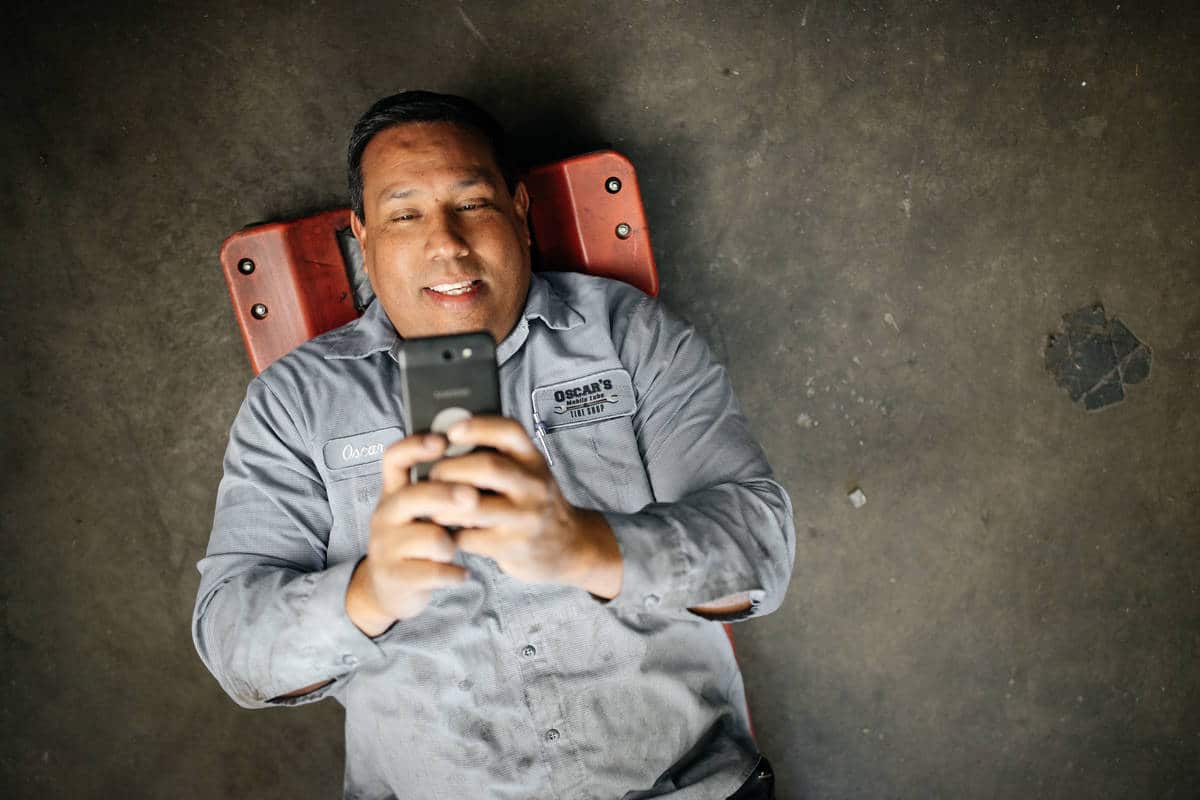
How Landline Phone Systems Reduce Efficiency in Your Small Business
Households are saying goodbye to their landline phone systems in record numbers and embracing mobile technology. This trend begs the question about whether you should follow suit for your business.
Though every business is different, there’s no denying that landline technology is on its way out. Recently, AT&T announced that they plan on ending landline coverage in 2020.
A spokesperson from the company said, “We’re investing in a technology that consumers have said they don’t want anymore, and wasting precious hundreds of millions of dollars that could be going to the new technologies that would do a better job of serving customers.”
Now the days of the landline are numbered, and companies should be looking at available alternatives to a landline. A virtual phone system such as VoIP (Voice over Internet Protocol) can do everything a landline can do, and more. This includes welcome greetings and auto-attendants, call menus, and voicemail. (Click here to see how Weave phones might be the right landline alternative for your business).
Here’s why you should cut the cord.
You’re Missing Phone Calls
How often do you and your team leave the office? If your business requires you to be off-site, then you’re missing calls from other customers and potential clients. You might have a receptionist that can field your calls, but what happens when you’re unreachable?
Most likely, you’ve already got a mobile phone, so you could make it a part of your virtual phone system, allowing it to connect to your communications network. This would allow clients to reach you without having your personal mobile number.

Even if your team spends 100% of their time onsite, you still need coverage for lunch breaks, team outings, and staff meetings. In cases like these, it’s smart to have your phones forward to someone available to take a call or set up a feature like missed call texting that allows you to stay in communication with clients and prospects.
And, it’s not just the phone calls from being out of the office that you’re in danger of missing. There’s also the dreaded busy signal. If you have a landline, you’re limited to the number of phone calls you can accommodate. If your business has three lines, and all three of them are being occupied, what happens when a fourth person calls? They’ll hear a busy signal, and they won’t be able to reach you.
If this situation happens to a current customer, they’re bound to feel frustrated. And, if it’s a potential client calling to inquire about your services, they’re most likely going to dial the next company on the list.
Having a virtual system like VoIP (Voice over Internet Protocol) allows you to make and receive phone calls from any Internet-connected device. As a result, you’re no longer tethered to a landline, and you’re free to operate your business without the fear of missing calls. "Amazing technology has simplified our {client} communication immensely! We are fairly new and can't wait to learn even more Weave features... customer service and tech support is SPOT ON and can't be beat! " - The Eye Station
Weave Helps Streamline Business Communication
You’re Overpaying for Subpar Service
No one wants to hear that they’re overpaying for an inferior product, but if you have a landline phone system, that’s exactly what’s happening.
Phone companies charge hefty long-distance and international calling fees. Even if your business operates locally, you could still be paying for long-distance because the lines that are drawn between local and long-distance are arbitrary. To camouflage these fees, some companies are now building long-distance charges into your bill, which means you could be paying for a service you don’t use!
Most companies save at least 25% on their phone bill by cutting the cord and switching to a system that doesn’t charge long distance fees.
You’re Annoying Your Customers
There’s been a recent shift in how people want to communicate, especially with businesses. A recent survey showed that 78% of consumers prefer to communicate with a company via text. Phone calls can be disruptive and inefficient, and it makes sense if you put yourself in a customer’s shoes.
For example, your business is likely open during the same hours that someone is at work. If you need to reach a customer, calling them is likely to result in having to leave a voicemail. Your customer might call you back during their lunch break, which probably coincides with your lunch break! The result is an endless game of phone tag, voicemail messages, and frustration.
Now, imagine that if you or your customer need to reach each other, you could send a text. Ideally, the text message would go to a phone that’s connected to your business, and your customer database, not just any old cell phone. With a system like VoIP, this type of setup is the norm. Your entire communication system gets an upgrade, and you save money in the process!
Lack of Integration
Most businesses with landlines are guilty of having Post-It notes sticking to every available surface. The notes are reminders to call a customer, collect billing information, complete a task, etc. It’s chaotic and inefficient.

When companies switch to VoIP, especially a provider that integrates with their business systems, a whole new world of possibility opens up. Follow-up tasks can be assigned in the phone system, and all of those notes and tasks can be accessed from any phone or device (including tablets and desktops) on your phone network.
Not only does this make life more organized for your team, but you can also end up benefiting from:
- No more tasks falling through the cracks
- Your team is more organized and relaxed
- Your customers feel better-taken care of because they know you’re on the ball
- All of your customer information is in one place, so nothing gets lost, and all of their data is at your fingertips
Lack of Adoption Among Younger Employees
Employees in their twenties and early thirties are accustomed to communicating on cell phones and through digital displays. If they have a choice between a corded landline sitting at their desk and making a quick call from their mobile phone, then they’re bound to choose the latter.

You could, of course, train your employees to use their desk phones. Or, you could take their feedback to heart. The reasons they choose their mobile phones over their desk phones might surprise you. Some will cite “confusion,” but more often than not, you’ll probably hear that it’s more convenient, and they can do their jobs better from a mobile device.
The preference to use a mobile phone is widespread across industries. According to a survey from Credit Union Times, 56% of office employees want to use their mobile phones, and that figure jumps to 75% for hospitality employees. By ditching the landline and giving your team the freedom and flexibility to use their mobile devices, you can increase employee satisfaction and save some money, too.
Redundant Equipment
It’s not just younger employees that are shunning those outdated desk phones. Even the majority of Generation Xers and Baby Boomers will admit that their smartphones are superior communication devices. The ability to text, read voicemail transcripts, and send multimedia from a single device is a gamechanger.
Still, many enterprises are reluctant to let their standard desk phones with a landline connection go. It’s tradition! Or, softphones are unprofessional! If you’ve echoed these sentiments, then it might help to look at this way: you’re paying for more than you need to. If your employees are using their cell phones as their default communication tool, does it make sense to also pay for a secondary phone?
You’re Harming Your Reputation
Now that we’ve established your employees are shunning their desk phones and using their mobile phones any chance they get, it’s time to consider what happens when a client calls and gets an employee’s personal cell phone greeting. This type of greeting is incongruent with your brand identity, and it’s also unprofessional. And, what happens if your employee’s voicemail box is full?
By switching to a virtual phone system, each phone in your network (including cell phones) can have a professional greeting. In the event of a full voicemail box, the message would go directly to the employee’s email. You can also set up different greetings for calls that come in after-hours.
With a landline system, you won’t have these features unless you purchase a separate cell phone for each of your employees and then set it up separately. Again, you end up paying for more than what you need.
Conclusion
To succeed in a crowded marketplace, your business needs to be as efficient as possible. This principle applies to all industries, whether you’re a dental office or a construction company.
Modern technological advances have given businesses the ability to increase efficiency, improve the way that they operate, and enhance the customer experience. Given that communication is the backbone to any successful business, it’s a good idea to ensure that your system is serving customers in the best way possible.
We believe that VoIP is the future of phone communication and that the future is already here. To learn more about how Weave can increase efficiency in your small business, schedule a demo today.